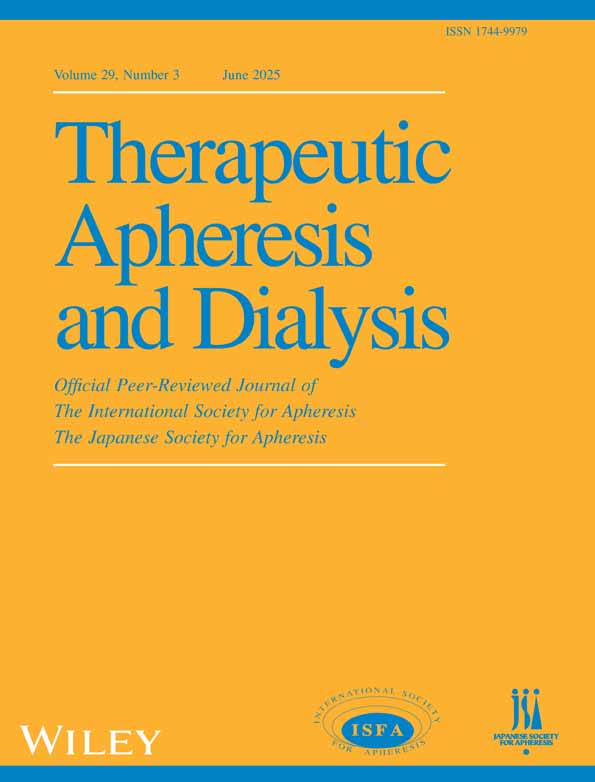Prognostic value of Glasgow prognostic score in patients undergoing hemodialysis
Abstract
Introduction
Usefulness of the Glasgow prognostic score (GPS), modified GPS (mGPS), and high-sensitivity mGPS (HS-mGPS) in the prognosis of patients undergoing hemodialysis remains unclear. This study aimed to investigate this.
Methods
The GPS, mGPS, and HS-mGPS were calculated retrospectively in 339 patients undergoing hemodialysis; their association with all-cause mortality was analyzed using the Kaplan–Meier method and Cox proportional hazards models.
Results
Survival rates decreased according to the GPS (0, 1, and 2), but were similar between the mGPS and HS-mGPS. In the multivariate Cox proportional hazards model, the GPS, not the mGPS or HS-mGPS, was associated with a higher risk of all-cause mortality in patients with scores 1 (hazard ratio [HR]: 1.76, 95% confidence interval [CI]: 1.29–2.42, p = 0.0004) and 2 (HR: 2.87, 95% CI: 1.91–4.32, p < 0.0001) compared with score 0.
Conclusions
The GPS classified patients into poor prognostic risk groups more clearly than other scores.
CONFLICT OF INTEREST STATEMENT
The authors have declared that no conflict of interest exists.
Open Research
DATA AVAILABILITY STATEMENT
The data presented in this study are available on request from the corresponding author.




